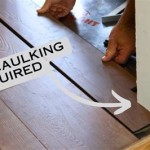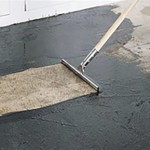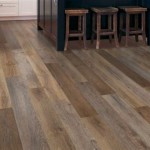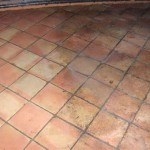Can You Put Underlay Under Vinyl Sheet Flooring On Concrete?
Vinyl sheet flooring offers a durable, water-resistant, and cost-effective flooring solution, particularly attractive for areas like kitchens, bathrooms, and basements. When installing vinyl sheet flooring over a concrete subfloor, the question of whether to use an underlayment often arises. This article explores the factors influencing this decision and provides guidance for making the best choice for a specific installation.
Benefits of Using Underlayment
Underlayment for vinyl sheet flooring provides several advantages when installed over concrete. One primary benefit is enhanced comfort. The underlayment adds a layer of cushioning, making the floor softer underfoot and reducing fatigue, particularly beneficial in areas where individuals stand for extended periods. This cushioning also absorbs the impact of foot traffic, reducing noise transmission to lower floors.
Another key advantage is improved thermal insulation. Concrete subfloors can be cold, especially in colder climates. An underlayment adds a layer of insulation, helping to retain heat and create a warmer, more comfortable floor surface. This can also contribute to energy savings by reducing the need for excessive heating.
Finally, underlayment can help mitigate minor subfloor imperfections. While significant imperfections require leveling, a suitable underlayment can smooth out minor bumps and dips, creating a more even surface for the vinyl flooring. This contributes to a better aesthetic finish and can extend the life of the vinyl by preventing stress and wear in areas over imperfections.
Types of Underlayment Suitable for Vinyl Sheet Flooring on Concrete
Several types of underlayment are compatible with vinyl sheet flooring over concrete, each with its own set of properties. Foam underlayment is a popular choice, offering good cushioning and insulation at a relatively low cost. It's available in varying thicknesses, allowing for customization based on the desired level of comfort and support. However, some foam underlayments can be susceptible to compression over time, particularly under heavy furniture.
Felt underlayment, traditionally used with other flooring types, can also be used with vinyl sheet flooring. It provides good sound insulation and moisture resistance. However, felt underlayment is generally thicker than foam, which may require adjustments to door thresholds and transitions.
Another option is a specially designed vinyl flooring underlayment, often incorporating a moisture barrier to protect against moisture emanating from the concrete. These underlayments are typically thinner than foam or felt, providing a less noticeable height increase while still offering some cushioning and insulation.
Considerations When Choosing to Use Underlayment
Several factors should influence the decision of whether to use underlayment with vinyl sheet flooring on concrete. The existing condition of the concrete subfloor is paramount. If the subfloor is uneven with significant cracks or imperfections, leveling may be necessary before installing any underlayment. While underlayment can mask minor imperfections, it cannot compensate for structural issues.
The environment in which the flooring will be installed plays a significant role. In areas prone to moisture, such as basements or bathrooms, an underlayment with a built-in moisture barrier is highly recommended. This helps protect the vinyl flooring from moisture damage and mold growth. In drier areas, a standard foam or felt underlayment may suffice.
The specific type of vinyl sheet flooring being installed should also be considered. Some vinyl flooring products come with a pre-attached backing that functions as an underlayment. In these cases, adding a separate underlayment is usually unnecessary and may even void the manufacturer’s warranty. It's crucial to check the manufacturer's recommendations before installing any additional underlayment.
The desired level of comfort and insulation is another factor to consider. If enhanced comfort and warmth are desired, a thicker underlayment, such as foam or felt, is a good option. However, if minimal height increase is preferred, a thinner, specialized vinyl flooring underlayment may be more appropriate.
Finally, budget considerations play a role. Underlayment adds to the overall cost of the flooring project. While the cost of underlayment is relatively low compared to the cost of the vinyl flooring itself, it is still a factor to consider, especially for large installations. Balancing the benefits of underlayment with the budget constraints is essential.
Choosing whether to use underlayment with vinyl sheet flooring on concrete requires careful consideration of various factors. By assessing the subfloor condition, environmental factors, flooring type, desired comfort level, and budget, one can make an informed decision that ensures a successful and long-lasting flooring installation. Consulting with a flooring professional can provide valuable guidance in selecting the most appropriate underlayment for a specific project.

How To Prepare A Concrete Floor For Vinyl Flooring Parrys

What Type Of Underlay For Vinyl Flooring On Concrete

Lvp Flooring Installation Over Concrete Subfloor Full Instructional Builds By Maz Flooret

Tips For Installing Vinyl Plank Over Concrete Floors Lemon Thistle

Do I Need An Underlayment For Vinyl Flooring Lx Hausys

Underlayment For Vinyl Sheet Flooring Your Ultimate Guide Leading Manufacturer From Longda

Do You Need Underlay For Vinyl Flooring Here S The Truth

Choosing Underlayment For Vinyl Plank Flooring Your Ultimate Guide Jona Panel S Inc

Complete Guide Underlayment For Vinyl Sheet Flooring

What Underlay Is Required For Installing Vinyl On A Concrete Floor Mersey Flooring
See Also







